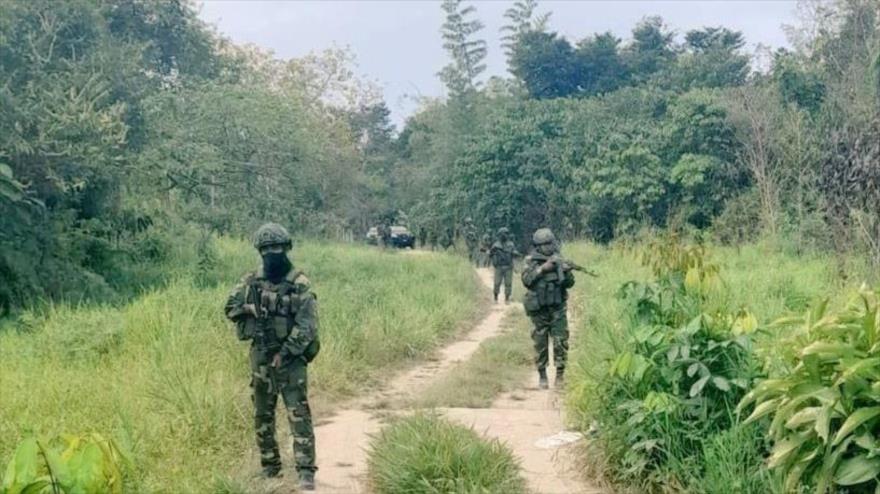
Venezuelan soldiers patrolling the border with Colombia. Photo: Kawsachun Coca.

Orinoco Tribune – News and opinion pieces about Venezuela and beyond
From Venezuela and made by Venezuelan Chavistas

Venezuelan soldiers patrolling the border with Colombia. Photo: Kawsachun Coca.
Venezuela reported the discovery and deactivation of a large number of Colombian military-made explosive bars in a border area.
5,000 sticks of explosives were seized during the “raid and seizure” of an illegal camp built by a Colombian terrorist group in the border state of Apure, in southwestern Venezuela, the general-in-chief of Venezuela’s Strategic Command Operations of the Bolivarian National Armed Force (CEOFANB), Domingo Hernández Lárez, announced on Tuesday, February 8.
“We have deactivated explosives from Colombian military industries placed in trees, roads, and under bridges, used by TANCOL (Colombian terrorist groups) to terrorize Venezuelan residents in our territory and use it as a route for drug trafficking,” said the Venezuelan top commander.
In addition, he explained that a large amount of materials related to the explosives were found, including 6,000 detonators and more than 900 domestic gas cylinders installed as traps within Venezuelan territory.
RELATED CONTENT: Duque Wants to Speak with Russian Ambassador about Violence in Colombia’s Arauca
El mal no tiene límites dentro de la perversión de la mente destructiva de los terroristas colombianos creando instrumentos de destrucción para diseminar el consumo de drogas por el mundo. Estas son bombonas de gas para matar pobladores y destruir vehículos! pic.twitter.com/BjORPtWepx
— GJ. Domingo Hernández Lárez (@dhernandezlarez) February 8, 2022
Along these same lines, the Venezuelan military chief reported that the explosives were deactivated thanks to the work of FANB troops. The Venezuelan Armed Force will continue to “deepen and advance” in the area to “eradicate the terrorist encampments” and expel them from Venezuelan territory, Hernández Lárez added.
Venezuelan President, Nicolás Maduro, has decreed an orange alert several times on the Colombian-Venezuelan border and has ordered a military deployment in the area to protect Venezuelans against the infiltration of armed groups from the neighboring country.
Featured image: Venezuelan soldiers patrolling the border with Colombia. Photo: Kawsachun Coca.
(HispanTV)
Translation: Orinoco Tribune
OT/JRE/SL